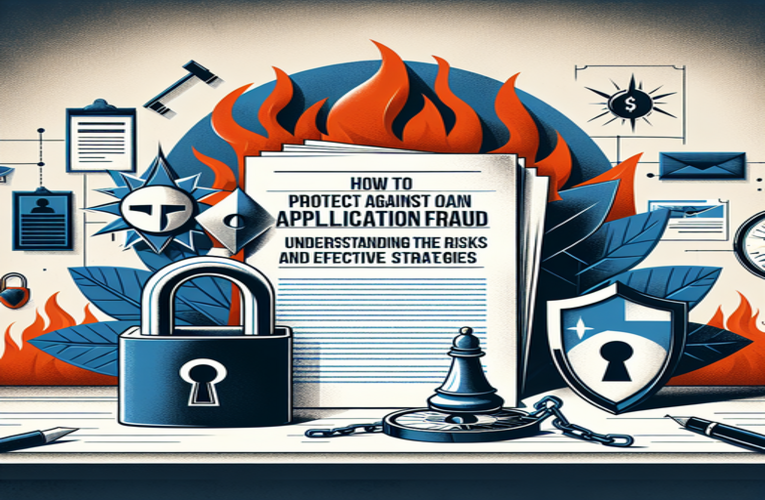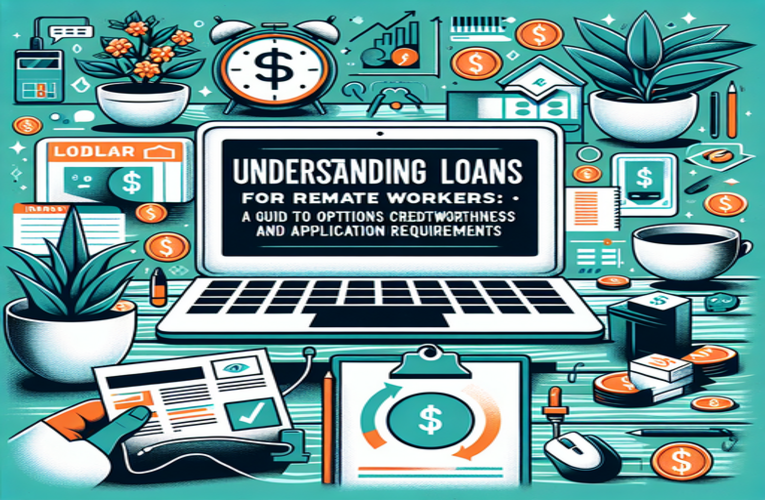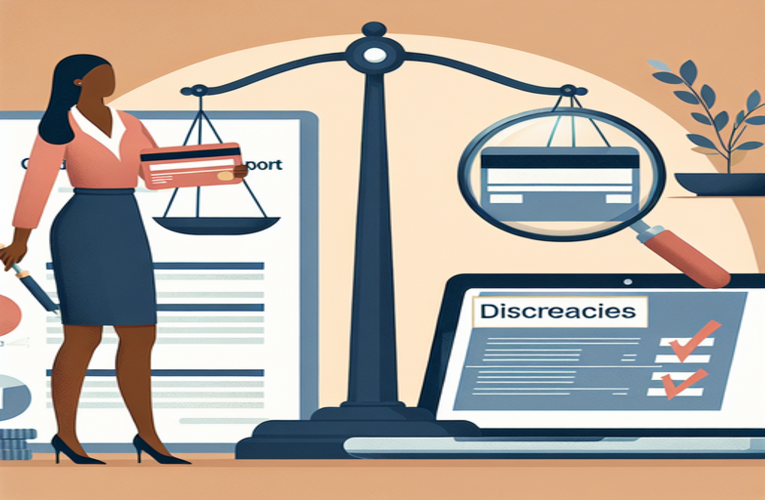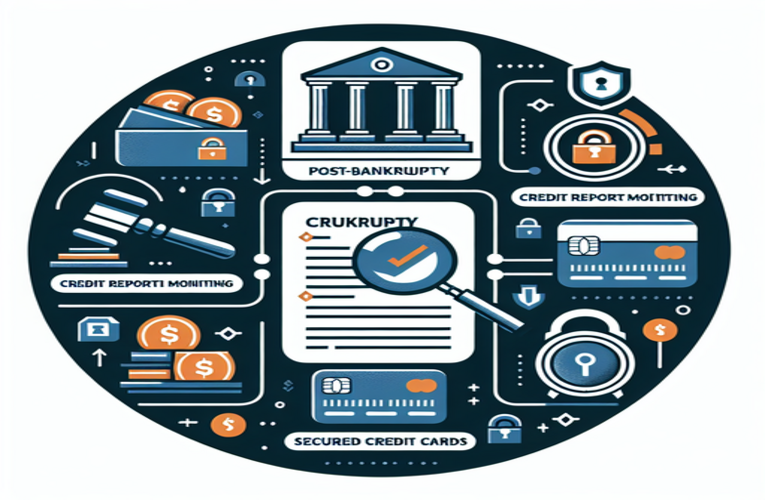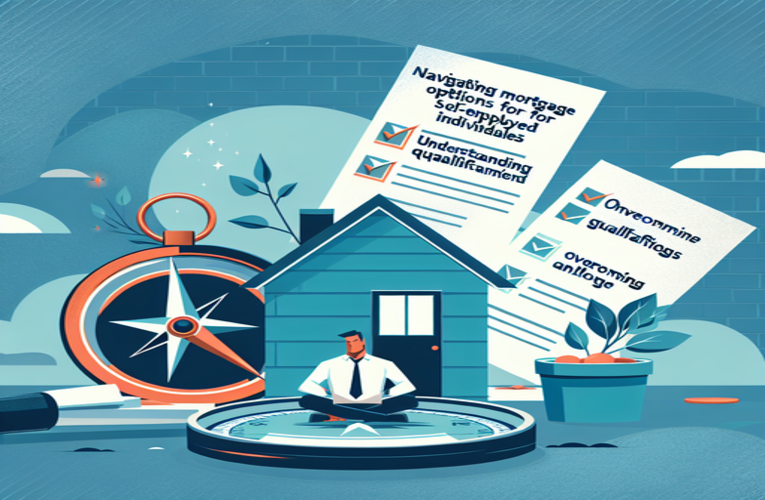Navigating mortgage options for self-employed individuals: understanding qualifications and overcoming income challenges
Securing a mortgage when you’re self-employed can often feel like a daunting task, rife with unique challenges and complexities. Understanding the various mortgage options available to self-employed individuals is essential, as traditional salaried workers typically enjoy a smoother approval process. In this article, we will explore the nuances of overcoming mortgage challenges for self-employed borrowers, including how to effectively demonstrate your income, the important documentation you need, and strategies to enhance your chances of approval.
In this article, you will discover:
- Key challenges faced by self-employed mortgage applicants
- Strategies for effectively proving income as a self-employed borrower
- Essential financial documents required for mortgage applications by self-employed individuals
- Current trends in the mortgage market that can benefit self-employed home buyers
By equipping yourself with the right information and strategies, including mortgage approval tips for self-employed borrowers, you can confidently navigate the mortgage lending landscape, ultimately paving the way toward successful homeownership despite the unique obstacles that self-employment presents. Whether you are a freelancer, small business owner, or independent contractor, understanding these critical aspects will serve as a valuable resource in your home-buying journey.
Understanding the qualifications for securing a mortgage as a self-employed individual can often appear intricate and overwhelming. This complexity arises from the distinctive documentation and income verification processes that independent contractors, freelancers, and small business owners must navigate. Unlike those in salaried positions, self-employed individuals frequently encounter heightened scrutiny from lenders, who aim to confirm that these borrowers can fulfill their financial commitments over the long term.
Key Challenges for Self-Employed Borrowers
- Demonstrating Consistent Income: Self-employed individuals often experience variability in their earnings due to seasonal work, fluctuating demand, or irregular contracts. Unlike salaried employees with predictable paychecks, this fluctuation can make them less appealing to lenders who favor stability.
- Documentation Requirements: Lenders typically request two to three years of personal and business tax returns, profit and loss statements, and bank statements to assess financial health and income trends. This extensive documentation is necessary to paint a comprehensive picture of the borrower’s ability to repay the loan.
- Debt-to-Income Ratio: Calculating an accurate debt-to-income (DTI) ratio can be more complex for self-employed borrowers due to business expenses and deductions, which can lower the reported income on tax returns.
Factors Affecting Mortgage Approval
- Credit Score: A credit score of 620 or higher is generally expected, but higher scores can qualify borrowers for better interest rates and loan terms. Maintaining a good credit history by paying bills on time and reducing debt can enhance approval chances.
- Debt-to-Income Ratio: Lenders prefer a DTI ratio below 43%, but some may accept higher ratios depending on other compensating factors. Self-employed borrowers should aim to reduce their existing debt before applying.
- Financial Stability: Significant cash reserves and assets can improve approval chances. Lenders like to see that borrowers have enough savings to cover mortgage payments for several months in case of income fluctuations.
- Business Longevity: Having a stable business history, typically at least two years, demonstrates reliability and can make lenders more comfortable extending a mortgage.
Table of Contents
Alternative Mortgage Options for Self-Employed Borrowers
Working with lenders experienced in the nuances of self-employment is crucial. They may offer alternative mortgage options tailored to self-employed individuals, such as:
- Bank Statement Loans: These loans allow borrowers to qualify based on bank statements instead of traditional tax returns and W-2s. Lenders review deposits over a 12 to 24-month period to assess income.
- Asset-Depletion Loans: Borrowers can qualify based on significant assets instead of income. The lender calculates income streams from liquid assets like savings, investments, or retirement accounts.
- No-Doc Loans: These require minimal income documentation but often come with higher interest rates and require larger down payments due to increased risk for the lender.
These alternative mortgage solutions can be beneficial for freelancers, independent contractors, and entrepreneurs who may not have traditional income documentation but have reliable cash flow and strong financial profiles.
Preparing for a Mortgage as a Self-Employed Individual
Meticulously preparing your financial documents can enhance your chances of obtaining a favorable mortgage. Key steps include:
- Organize Financial Records: Maintain up-to-date and accurate profit and loss statements, balance sheets, and business bank statements to provide clear evidence of income and financial health.
- Improve Credit Score: Review your credit report for errors, pay down outstanding debts, and ensure all bills are paid on time to boost your creditworthiness.
- Save for a Larger Down Payment: A higher down payment can mitigate lender concerns and potentially secure better loan terms.
- Limit Tax Deductions Temporarily: While deductions reduce taxable income, they can also lower the income figure lenders use to assess your borrowing capacity. Consider balancing deductions with the need to demonstrate sufficient income.
- Consult a Mortgage Professional: Engaging with knowledgeable lenders or mortgage brokers who specialize in self-employed borrowers can significantly broaden your options and provide personalized advice.
By recognizing these specific requirements and staying informed about trends like alternative documentation, you can successfully navigate the complexities of obtaining a mortgage as a self-employed individual.
Effective Strategies for Proving Income in the Mortgage Application Process
Navigating home loan options for self-employed individuals often presents a series of hurdles, particularly when the time comes to substantiate income for loan approval. Unlike traditional employees who can easily present W-2 forms, self-employed individuals typically must compile a variety of financial documents. These can include 1099 forms, personal and business tax returns, and detailed profit-and-loss statements from their business ventures. This process is more complex and can raise concerns for lenders, especially when reported income seems erratic due to various business deductions.
Challenges in Proving Income
- Lower Reported Income: Self-employed individuals may report lower taxable income due to significant business expenses, which can lead lenders to perceive the applicant as a higher risk. For example, an entrepreneur might have gross revenues of $150,000 but deduct $100,000 in business expenses, showing a net income of only $50,000.
- Perceived Financial Instability: Fluctuating income can make it challenging for lenders to assess the true financial picture. Seasonal businesses or industries affected by economic cycles can contribute to income volatility.
Effective Strategies for Income Verification
To successfully navigate this intricate process, self-employed applicants can adopt several effective strategies:
- Provide Extensive Documentation: Gather at least two years of filed tax returns, including all schedules and attachments, to provide a complete picture of income streams and deductions.
- Prepare Detailed Profit-and-Loss Statements: These should be prepared meticulously, showcasing revenues, expenses, and net income clearly. Consider having them reviewed or prepared by a certified public accountant (CPA) for added credibility.
- Maintain Consistent Financial Records: Ensure that bank statements, invoices, and receipts align with reported income and expenses to avoid discrepancies during underwriting.
- Demonstrate Business Stability: Provide evidence of long-term contracts, client testimonials, or industry certifications that highlight the stability and reliability of your business.
Organized and transparent documentation not only aids in establishing creditworthiness but also minimizes potential confusion during the underwriting phase. Furthermore, engaging with mortgage lenders who possess expertise in financing for self-employed individuals can significantly improve the likelihood of securing a loan. Such lenders understand the distinct characteristics of self-employment income and can provide tailored options, including bank statement loans or alternative income verification methods that may not require traditional documentation.
Leveraging Professional Assistance
Consider working with financial advisors or accountants who specialize in self-employment income. They can help structure your finances in a way that maximizes your borrowing potential while maintaining compliance with tax laws. Additionally, mortgage brokers familiar with self-employed borrowers can connect you with lenders offering the most suitable products for your situation.
Enhanced Financial Documentation for Mortgage Approval
Navigating mortgage loans for self-employed individuals requires careful preparation, particularly when it comes to assembling necessary financial documentation. This crucial step can transform what might feel like an overwhelming process into a manageable one. Proper documentation serves as tangible proof of income and financial health, which is imperative for lenders assessing your application.
Key Financial Documents Needed
- Personal and Business Tax Returns: Compile at least two to three years of tax returns to provide lenders with a comprehensive view of your income over time. Ensure all schedules (like Schedule C for sole proprietors) are included.
- Profit and Loss Statements: These showcase the financial performance of your business over a specific period, highlighting revenue, expenses, and net profit.
- Balance Sheets: Provide a snapshot of your business’s financial position, detailing assets, liabilities, and equity. This information can reassure lenders about the stability of your enterprise.
- Bank Statements: Include recent personal and business bank statements to offer additional proof of financial stability and cash flow consistency.
- Business Licenses and Registrations: Documentation proving legal operation and longevity of your business can strengthen your application.
- Form 4506-T: A request for transcript of your tax return, which allows the lender to verify the tax documents you’ve provided with the IRS records.
These documents work together to paint a clear picture of your financial situation, especially since traditional income verification mechanisms—such as W-2 forms—are often not applicable for self-employed individuals. Many rely on 1099 forms or direct business income, necessitating a well-defined outline of various income sources.
Challenges and Key Metrics
- Validation Difficulties: Approximately 30% of self-employed applicants encounter difficulties when attempting to validate their income, according to industry studies.
- Debt-to-Income (DTI) Ratio: This critical indicator reflects your ability to manage additional financial responsibilities effectively. Lenders typically prefer a DTI ratio below 43%, but some may accept higher ratios with compensating factors.
- Credit Score: A score above 700 can significantly improve your loan terms. Maintaining good credit by managing debts and making timely payments is essential.
- Loan-to-Value (LTV) Ratio: A lower LTV ratio, achieved through a larger down payment, can reduce risk for the lender and improve your chances of approval.
To enhance your likelihood of securing favorable mortgage options, diligent record-keeping is indispensable. This meticulous approach not only showcases your financial discipline but also allows you to meet various lender requirements more efficiently. Moreover, having your documentation prepared in advance streamlines the entire application process, positioning you as a reliable borrower in the eyes of lenders.
Understanding Current Trends in the Mortgage Market
Be aware of current trends in the mortgage market for self-employed individuals. For example, in recent years, lenders have started offering more flexible underwriting guidelines recognizing non-traditional income sources. This includes considering income from side businesses, gig economy work, or contract-based employment. Additionally, advancements in technology allow lenders to use automated systems to analyze cash flow directly from bank accounts, potentially simplifying the verification process.
Additional Tips for Mortgage Success
- Maintain Low Business Debt: Reducing business liabilities can improve your financial ratios and make your application more attractive.
- Avoid Major Financial Changes: Prior to and during the mortgage application process, avoid significant purchases or opening new credit lines, which can affect your credit score and DTI ratio.
- Consider a Co-Signer: If eligible, a co-signer with stable income and good credit can bolster your application.
Navigating mortgage options as a self-employed individual is a complex but manageable endeavor with the right preparation and knowledge. By focusing on the specific requirements of lenders, maintaining organized financial records, and staying informed about market trends, you can greatly improve your chances of achieving a successful mortgage application. This proactive strategy not only enhances your credibility but also simplifies the journey through the complex landscape of mortgage financing designed for self-employed individuals.
Summary
Securing a mortgage as a self-employed individual involves unique challenges and requires specific strategies to demonstrate income effectively. Navigating mortgage options for self-employed individuals necessitates a deep understanding of lender requirements and financial documentation. Here are the essential points to consider:
- Key Challenges:
- Self-employed professionals must establish consistent income, despite fluctuations in earnings.
- Comprehensive documentation, including two years of tax returns and detailed profit-and-loss statements, is crucial for mortgage lenders.
- Critical Factors for Approval:
- A credit score of 620 or higher is generally required for favorable mortgage terms.
- Your debt-to-income ratio should ideally remain below 43% to qualify for self-employed mortgage financing.
- Maintaining sufficient cash reserves can significantly enhance your chances of mortgage approval.
- Effective Income Verification Strategies:
- Prepare and present thorough documentation to illustrate income stability and business growth over time.
- Essential documents include tax returns, bank statements, and detailed profit-and-loss statements to support your mortgage application.
- Alternative Options:
- Consider working with lenders experienced in self-employment who offer flexible mortgage options, such as bank statement loans.
- Market Trends:
- Stay informed about market trends that recognize alternative income sources, which can strengthen your self-employed mortgage application.
By preparing thoroughly and understanding lender requirements, you can successfully navigate the mortgage application process, paving the way toward homeownership as a self-employed professional.
FAQs
What types of lenders are best suited for self-employed individuals seeking mortgages?
Lenders experienced in self-employment can provide tailored mortgage options, such as bank statement loans, self-employed mortgage products, or alternative income verification methods. It’s advisable to research and engage with mortgage brokers or financial institutions who understand the unique financial profiles of self-employed borrowers seeking home financing.
Can self-employed individuals qualify for government-backed mortgage loans?
Yes, self-employed individuals can qualify for government-backed mortgage loans, including FHA, VA, and USDA loans, though they must still meet specific documentation and income verification requirements. It’s essential to work with lenders familiar with these government loan programs to ensure compliance and eligibility for self-employed borrowers.
How can self-employed individuals improve their credit score before applying for a mortgage?
Improving your credit score can be achieved by paying down existing debts, ensuring timely bill payments, and reducing credit utilization ratios. Additionally, maintaining a healthy credit history by managing credit accounts responsibly and regularly checking your credit report for errors can help boost your score, making you a more attractive candidate for self-employed mortgage applications.
Is it necessary to provide a personal guarantee when applying for a business loan as a self-employed individual?
Often, lenders may require a personal guarantee for business loans, especially if the business is relatively new or hasn’t generated substantial revenue. This personal assurance ensures that the lender has recourse if the business fails to repay the loan, thereby increasing the likelihood of approval for self-employed entrepreneurs seeking business financing.
What should self-employed individuals do if they have inconsistent income when applying for a mortgage?
Self-employed individuals with inconsistent income should consider documenting their earnings over a longer period and providing evidence of cash flow stability. This might include showing savings, substantial business performance, or diversified income sources to appeal to lenders and demonstrate financial resilience for mortgage approval.
How do lenders view business expenses when evaluating mortgage applications for self-employed individuals?
Lenders may consider business expenses as a factor that lowers taxable income, which can impact mortgage approval. It is beneficial for self-employed applicants to present a clear picture of their financial health, including a well-documented list of necessary business expenses and accurate financial statements to support their mortgage application.
What additional documentation might enhance a self-employed individual’s mortgage application?
Including additional documentation such as contracts showing future earnings, a letter from an accountant validating income, or a history of consistent business performance can bolster a self-employed individual’s mortgage application. Providing comprehensive financial records and projections can further strengthen the application and increase the chances of loan approval.
Can self-employed individuals include non-traditional income sources on their mortgage applications?
Yes, many lenders now recognize non-traditional income sources like rental income, investment returns, or freelance earnings. Self-employed individuals should present reliable documentation, such as tax returns or bank statements, to substantiate this income when applying for a mortgage, thereby enhancing their application’s credibility.

